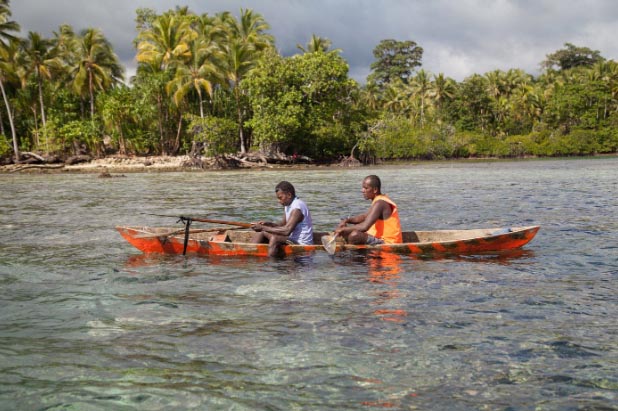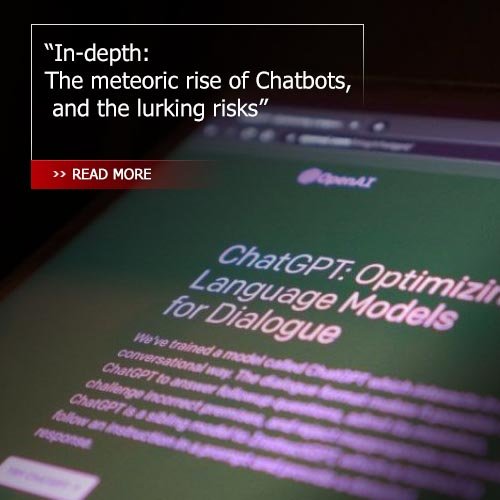In-depth: Inside Pacific Islands

Renewed efforts by the United States and China to strengthen their ties in the Pacific has thrown the spotlight on the islands scattered across the vast Pacific Ocean. While the US has long enjoyed military access to the islands, and has bases on some of them, China’s recent attempt to establish the same with Solomon Islands has met with alarm in the US and elsewhere. Small these islands may be, but together they represent control of one-fifth of the world’s oceans. Here’s a deeper look into the state of affairs in the islands and some of the critical issues that will have a bearing on its future.
A changing climate is changing the Micronesian way of life

Traditional fishing in the Pacific will need to adapt to a changed climate. Photo: Filip Milovac
BRISBANE – As Pacific Islanders struggle to survive in the face of climate change, they will need to adapt their traditional ways of fishing to the new reality.
For Micronesian people, seafarers down the ages, the Pacific Ocean is their playground, their livelihood and their source of sustenance. They contributed almost nothing to the climate crisis, but their island way of life means they have been among the first to suffer its devastating effects.
The sea provides up to 90 percent of Micronesians’ dietary protein and represents a crucial source of essential micronutrients, so a conversation about sustainable climate adaptations for fishing will be vitally important.
Regional security in the Pacific islands is in a flux

The United States is one of the key external actors shaping geopolitical change. (The White House, Wikimedia Commons)
PALMERSTON NORTH (New Zealand) – Amid global political turbulence, the Pacific is a region whose influence is sought by the world’s powers. Regional coordination is as important as ever.
Regional security in the Pacific Islands is in flux, with change fuelled by a trio of dominant drivers. As global economic powerhouses China and the US renew their interest in the region, monitoring the important drivers offers key insights into the future of the Pacific.
The first driver involves rethinking how security is defined.
The Pacific’s spiralling debt – and what governments can do about it

Fiji's economy relies on tourism, but after COVID-19, it faces debt levels of 80 percent of GDP. Photo: David Jones, Flickr
SUVA, Fiji – Rising debt and declining income seem to add up to an austere future for Pacific Island nations. But belt-tightening may make things worse.
The whole Pacific region is in recession, according to a late-2021 International Monetary Fund report. Income is down and spending is up. Global demand for regional exports has declined, and COVID-19 shut down the vital tourism sector. Meanwhile, countries have had to meet the expense of managing both the pandemic and climate change. It has all pushed Pacific nations into greater risk of debt distress. But austerity measures are only likely to undermine the region’s economic recovery.
GDP declined by an average of 2.4 percent in 2021, on top of a 3.7 percent slide in 2020. The COVID-19 pandemic hit tourism-dependent economies such as Fiji, Palau, Samoa, Tonga and Vanuatu hard — they saw an average economic contraction of 6.5 percent in 2021. Declining global demand also adversely impacted commodity-exporting countries such as Papua New Guinea (PNG), Solomon Islands and Tuvalu.
Asia and the Pacific stronger together

Both ASEAN and Pacific Island states could learn from each other in bringing much-needed development through external engagements while keeping at bay the negatives. Photo: Thuận Tiện Nguyễn, Pixabay.
KUALA LUMPUR – Better opportunities will arise from ASEAN and Pacific island nations banding together.
An opportunity has arisen. For small and middle powers, increasingly uncertain and aggressive geosecurity has provided a chance to influence global developments. For the Pacific Islands, their time in the sun may have just begun, and they could look to other regions of the world for clues on how to play their hand.
Engaging with great and regional powers remains inevitable. They hold influential positions in global institutions and have the capacity to assist others to attain their respective goals.




